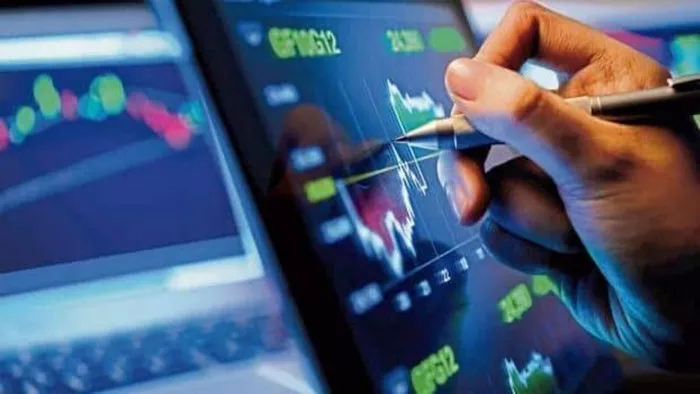In the intricate realm of financial markets, understanding how stock futures work is essential for investors seeking to explore new avenues of trading and risk management. Stock futures serve as a cornerstone of derivatives trading, allowing market participants to speculate on the future price movements of individual stocks.
Understanding Stock Futures
Stock futures are a type of financial derivative that derives their value from an underlying stock. These contracts obligate traders to buy or sell a specific quantity of a particular stock at a predetermined price on a future date. Unlike traditional stock trading, where ownership of the underlying asset changes hands, stock futures trading involves speculating on price movements without direct ownership. This makes stock futures an attractive avenue for both hedging against market risks and seeking profit opportunities.
Mechanics of Stock Futures
The mechanics of stock futures involve several key components that shape their functionality. One fundamental aspect is the standardized contract. These contracts establish the terms of the trade, including the specific stock, contract size, delivery date, and agreed-upon price. By standardizing these terms, the market ensures consistency, liquidity, and efficient price discovery.
A critical factor in stock futures trading is margin. Traders are required to deposit a fraction of the contract’s value – the margin – as collateral. This allows traders to control larger positions with a relatively smaller initial investment. However, it’s crucial to recognize that while margins amplify potential profits, they also magnify potential losses.
Significance of Stock Futures
Stock futures play a pivotal role in the financial landscape for various reasons. They offer an avenue for speculation and hedging. Speculators can profit from anticipated price movements without owning the actual stock, while investors and businesses can use stock futures to hedge against market risks. For instance, a portfolio manager holding a significant amount of a particular stock can enter into a stock futures contract to mitigate potential losses if the stock’s price declines.
Furthermore, stock futures contribute to price discovery. As traders speculate on future stock prices, their collective actions influence the current market sentiment. This process enhances market efficiency by aligning stock prices more closely with their intrinsic values.
How Stock Futures Work: A Step-by-Step Breakdown
Contract Specification: An investor interested in stock futures selects a specific stock and the expiration date for the contract. They also choose whether to buy (go long) or sell (go short) the contract.
Placing an Order: The investor places an order with a brokerage firm that facilitates stock futures trading. The order specifies the stock, contract size, expiration date, and the desired position (long or short).
Margin Requirement: The brokerage firm calculates the required margin based on the contract’s value and the prevailing margin rate. The investor must deposit this margin into their trading account.
Executing the Trade: Once the order is placed and the margin is deposited, the trade is executed on the designated futures exchange. The investor is now a party to the stock futures contract.
Monitoring the Position: As the contract’s expiration date approaches, the investor monitors the price movements of the underlying stock. They can choose to close their position before expiration or let the contract settle on the predetermined date.
Settlement: On the contract’s expiration date, the position is settled. If the investor is long, they must buy the stock at the agreed-upon price, while a short investor must sell the stock. Alternatively, the investor can choose to offset the contract before expiration by taking an opposite position.
Real-world Examples of Stock Futures Trading
To illustrate the practical application of stock futures trading, let’s explore a few scenarios across different contexts:
Speculation: An investor believes that the stock of Company XYZ will increase in value over the next three months. Instead of purchasing the stock outright, the investor enters into a stock futures contract to buy the stock at the current price, expecting to profit if the stock’s value indeed rises.
Hedging: A mutual fund manager holds a substantial amount of shares in Company ABC. Concerned about a potential market downturn, the manager enters into a stock futures contract to sell the same number of shares. If the stock’s price declines, the gains from the short stock futures position can help offset losses in the fund’s portfolio.
Arbitrage: An arbitrageur identifies a price discrepancy between Company PQR’s stock price in the cash market and its stock futures price. The arbitrageur simultaneously buys the stock in the cash market and enters into a short stock futures contract, capitalizing on the price difference.
Market Sentiment: A trader closely follows news and market trends related to Company LMN. Based on positive developments, the trader expects the stock’s price to surge in the coming days. To profit from this anticipated rise, the trader enters into a long stock futures contract.
Risks and Considerations
While stock futures trading presents various opportunities, it also entails risks that traders should be cognizant of. The leveraged nature of trading on margin can lead to substantial losses, as well as gains. Additionally, unexpected market volatility can result in significant price swings that might impact traders’ positions adversely.
Inadequate knowledge and research can lead to uninformed decisions. It’s essential for traders to have a robust understanding of the underlying stock’s dynamics, the market environment, and trading strategies before engaging in stock futures trading.
Conclusion
As a fundamental aspect of derivatives trading, stock futures serve as a powerful tool for investors seeking to navigate the complexities of financial markets. By grasping the mechanics, significance, and practical applications of stock futures trading, participants can strategically manage risks, speculate on price movements, and potentially enhance their investment portfolios. However, it’s crucial to approach stock futures trading with a deep understanding of its intricacies and the awareness that, while it offers opportunities for substantial gains, it also entails inherent risks that require diligent risk management.


